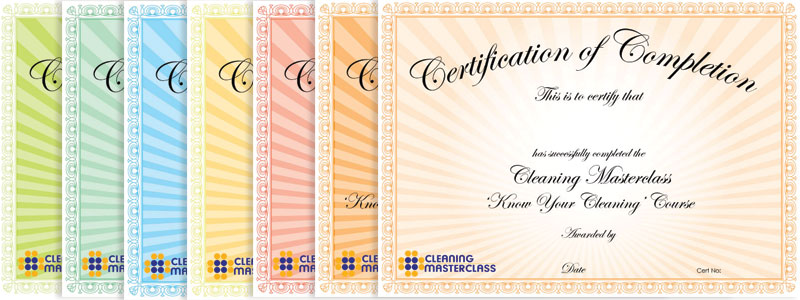Introduction
At the heart of all cleaning jobs, regardless of the working environment and industry, are the essential cleaning principles and practices – the key cleaning skills every cleaner, new or experienced, is required to be competent in. Sadly, many cleaners are employed or contracted with little or no cleaning skills, even in the hospitality industry where cleaning standards make the difference between good and bad reviews.
Cleaners without those essential skills pose a number of risks to the organisation: inefficient and ineffective working practices leading to excessive time wastage and cleaning materials wastage, posing preventable safety risks to others, and poor customer and public image.
Who Will Benefit from Our Practical Cleaning Skills Training Course?
All cleaners employed in all industries
New cleaners
Housekeepers & domestics in the Care & Hospitality Industry
Housekeepers & domestics in Clinics & Hospitals
Internal induction & onboarding training
Cleaning supervisors
Course Overview
Our Essential Cleaning Principles and Practical Cleaning Skills Training Course is designed to provide you or cleaning staff with two essential pillars of good cleaning: the essential knowledge that provides good cleaning planning skills, cleaning standards and attention to detail, with essential practical cleaning techniques covering 99% all the most common cleaning techniques.
Choose the best training delivery option for you
On-Site
-
- One day course with half day option
- Option to include additional cleaner training modules
- 12 months support for delegates and organisation
- Optional follow-up training assessement
- From £475 per session of up to 10 delegates
Distance Learning
-
- Cost effective
- Study worldwide
- 12 months support for delegates
- Fully printable course materials
- Online assessment
Customised Learning
-
- Fully customised delegate workbooks
- Study worldwide
- 12 months support for delegates and organisation
- Fully printable course materials
- Optional online or onsite assessment
What Will You Learn from The Course?
Knowledge of the key risk factors that have a direct and significant impact on an organisation: Appearance, hygiene and safety risks
Essential cleaning planning skills for efficient working
Demonstrate the most appropriate cleaning technique for the surface, safety and hygiene requirements and quality
Essential time management skills to prioritise tasks
Demonstrate the most commonly practiced cleaning techniques
The skills to spot potentially unsafe conditions in working practices, working environment, equipment and situations
Knowledge and understanding of continuous improvement principles for quality and safety
Demonstrate and apply detailed cleaning standards
Create a full room or area cleaning plan
Demonstrate safe working cleaning practices
Course Content
Section
Summary

Impact of Cleaning
Cleaners and housekeepers are professionals in a field of work that is a key part in the organisation they work in. They have a critical role to provide the best standard of cleaning service, and to do so with a duty of care to the employer, customers, themselves, and others. However, cleaners and housekeepers are often unaware of the consequences of their actions or inactions and the impact they have on the organisation, its staff, customers and public. It is vitally important for cleaning and housekeeping staff to understand that the standard of cleaning has a direct and significant impact of the successful operation of an organisation. Everyone – staff, customers and the public, must have confidence that the organisation can provide a safe and clean place, no exceptions.
This section starts by establishing the core essential cleaning principles by looking at the impact cleaning has on the organisation, its customers, staff and the public. To do that, the following topics are covered:
The four critical roles cleaners carry out every time: Cleaning for Appearance, Cleaning for Hygiene, Cleaning for Safety, and Cleaning for ‘Fit for Purpose’
The consequences of a poor appearance and visual standards to staff, customers and the general public
The risks of poor or insufficient hygiene control on surfaces for infection control
The risk of injury to people from poor or lack of good cleaning practices

Stages of a Clean
There are always time and workload pressures to meet deadlines and other pressures that seem to take up valuable time. It’s always feels like a rush. Coupled with the important need to clean those surfaces that attract the highest impact of cleaning risks as seen in the previous section. While these pressures can’t be eliminated, they can be controlled through forward planning cleaning activities. Everything we do in life and work typically follows a series of stages, with a beginning and an end point. Cleaning is no different.
This section takes the vital principles that impact cleaning and the risks they pose to the customer and organisation (previous section), and covers the practical ways to plan for cleaning, to make the cleaning as effective and efficient as possible.
This section covers the following topics:
Essential skills and techniques that will enable cleaning staff to plan their cleaning tasks to maximise their working efficiency
Essential skills and techniques to identify and prioritise the cleaning tasks according to the impact of cleaning
Creating effective cleaning plans for specific rooms as applicable – toilets, bathrooms, showers, kitchens, etc
Self-reviewing for continuous improvement
Good housekeeping practices

Cleaning Standards
Everyone has a different understanding of cleaning standards: what is a ‘high standard’ to one person may not be ‘high’ enough for another. How do we know when a surface is cleaned to a ‘high’ enough standard? Cleaning standards are written performance indicators that an organisation can use to measure the quality of the cleaning service provided. This is important to ensure a consistent, predictable, and repeatable level of service the organisation and its staff and customers expect. Cleaning standards is all about quality.
This section covers the following topics:
Understanding how the expectations and perceptions of all those people that use the room or area, including customers, must be reflected in cleaning standards
Creating a list of key cleaning standards for any room or area, considering the impact of cleaning risks and customer and staff expectations

Good Housekeeping Practices
Good housekeeping practice is both an attitude and practice that embraces every aspect of cleaning work and involves being constantly Active, Aware and Attentive in the workplace and immediate work area. Consistently high achieving cleaning staff need to be constantly active in keeping an orderly work practice, they need to be aware of potential hazards and not introducing new ones, and they need to attentive to quality in cleaning.
There is a direct relationship between cleaning staff actively keeping a workplace (including homes in domestic cleaning) in a safe and ordered condition and a working environment that improves productivity and morale for everyone. Crucially good housekeeping practices reflect a well-run organisation to customers or visitors from the outside.
This section covers the following topics:
Practices that encourage cleaning staff to be constantly active and aware of their surrounds as they work to ensure the workplace for everyone is an ordered and safe one
Practices that encourage cleaning staff to be attentive to detail as they are cleaning to ensure cleaning standards are fully and consistently met
An understanding that quality in cleaning embraces all aspects of cleaning, from storage cupboards to rubbish
Certified & Accredited
Where will this take you?


You will receive a personalised certificate (1 per user), each with a unique certification number. The certificate can be validated by simply contacting us.
You will be entitled to use the title of certified Cleaning Masterclass cleaner.


